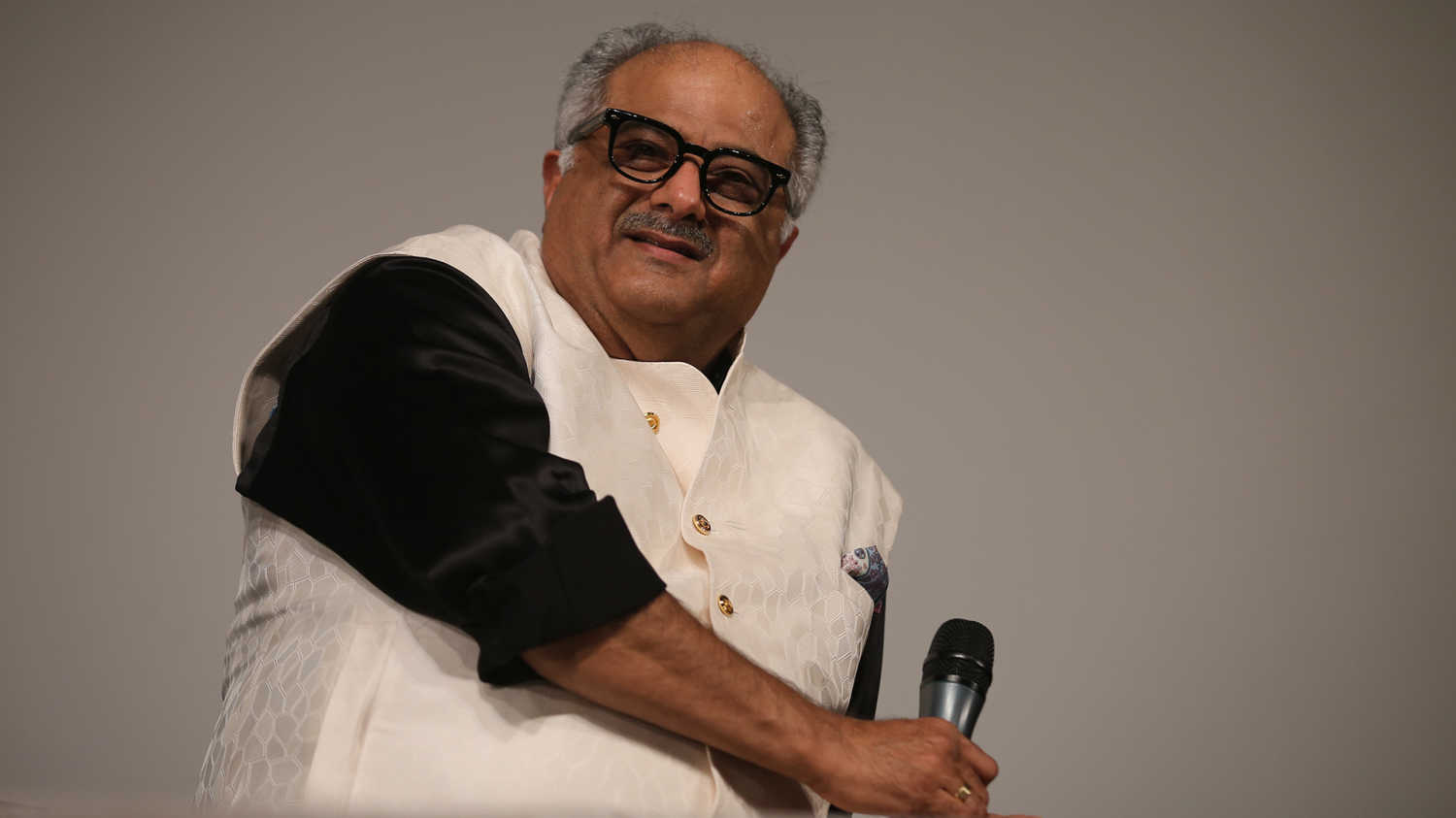The Valimai (2022) producer spoke about the growing influence of Hollywood on Hindi cinema and why it is a problem.
Exclusive: Some Hindi filmmakers are creating movies for Oscars, not Indian audiences, says Boney Kapoor
Mumbai - 27 Mar 2022 16:05 IST
Updated : 20:08 IST


Shriram Iyengar
Boney Kapoor is of the opinion that Hindi filmmakers must focus on stories that cater to the Indian palate in order to succeed.
In a conversation with Cinestaan.com before the release of Valimai (2022) — which arrived in theatres on 24 February — Kapoor, who produced the Ajith Kumar-starrer, stated that the success of films down South can be attributed to a clear understanding of the audience's needs.
The reception to major Hindi films in recent times has been lukewarm at best, the exception being The Kashmir Files, which has entered the elusive Rs200 crore club.
While Rohit Shetty's action film Sooryavanshi (2021) opened with impressive numbers, the lacklustre response to films such as 83 (2021), Antim: The Final Truth (2021) and Satyameva Jayate 2 (2021) has proved to be a worrying trend. On the other hand, the Hindi version of Allu Arjun's Pushpa: The Rise (2021) had a phenomenal run in Hindi territories. Even the Marathi films Jhimma (2021) and Pandu (2021) managed to give their Hindi rivals a run for their money in terms of box-office collections.
The producer explained, "They [Hindi filmmakers] are inadvertently trying to compete [with their Hollywood counterparts], which is good in spirit. But they need to compete in technique, not in content. Some of the content seems foreign. It's always better to be acquainted with the new formats and techniques. But for the Indian palate, you need to have a mix of all this."
Exclusive: Fans in South are very loyal, says Boney Kapoor
Pointing to the successful careers of directors Manmohan Desai and A Bhimsingh, Kapoor said, "They may have been influenced by foreign films, but the content was always Indian."
He added, "Our country runs on hero worship. It is a little more in the South, but it's even there in the North. Amitabh Bachchan's entry would get claps and whistles. People wrote letters in blood to Rajesh Khanna. If I start speaking on this, I could go on for hours. In the South, the hero is always the hero. He is presented as a hero. Here, there is the need to put in realism, then action. So, the film is neither here nor there."
The filmmaker said that even Raj Kapoor, whose influences range from Vittorio De Sica and Italian neorealism, did not veer away from Indian sensibilities in his film. "Raj Kapoor, as a filmmaker and as an actor, had reached the zenith of popularity only because he did not divert himself from the Indian palate. Shree 420 (1955), Jis Desh Men Ganga Behti Hai (1960) and Awara (1951) were Indian in sensibility."
"Some filmmakers, not all... their thought process is to compete with foreign films. Our aim should not just be Oscars. The Oscars can be a bonus. Mother India (1957) was sent to the Oscars, but Mehboob Khan didn't make the film for the Oscars."
It is my favourite go-to movie to this day: Boney Kapoor on The Godfather
Having backed Hindi-to-Tamil adaptations such as Nerkonda Paarvai (2019) and Veetla Visheshanga (2022) as well as the Hindi remake of the Malayalam thriller Helen (2019), Kapoor is more than familiar with the film industry down South.
Explaining the growing phenomenon of actors such as Allu Arjun, Prabhas and Yash becoming household names in the northern regions, he explained, "They are gods and demi-gods in the South, but they didn't have the same presence here. That is changing now, thanks to television. TV channels are buying dubbed films from the South, and releasing them on television. Primetime starts in the evening, but till then they have to fill the programming space. If you notice, most of the films shown in the afternoon are dubbed films. That is the reason why the heartland of India recognizes this talent."
The producer also remarked that while the infrastructure and standard of living in the Hindi heartland have changed, the people and their tastes have remained the same. He said, "Basically, the culture does not change. A percentage of the audience in metros and some critics, who feel superior by criticizing cliched mass pictures [have changed]. Sometimes they have their noses up, saying, 'This film looks like an old model'. But that's the one that works! Manmohan Desai made successful films with the same formula, no?"






